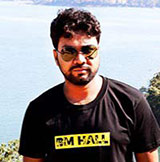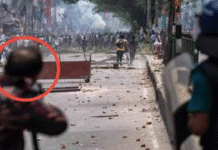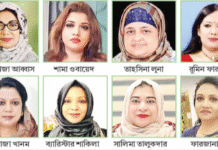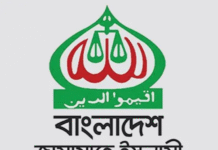Pope taught a lesson of serving the poor irrespective of caste, creed or ethnicity

Stephan Uttom, Dhaka
December 02, 2020

A child greets Pope Francis as he lands in Bangladeshi capital Dhaka on Nov. 30, 2017, for a three-day visit to the country. (Photo: Joe Torres/UCA News)
Maria Purification shivers with joy as she recalls meeting and touching Pope Francis when he visited Bangladesh three years ago.
“It is the most memorable experience of my life that I met and touched the person whom we consider the vicar of Jesus Christ on earth. My lifelong desire with prayerful perseverance has come true,” Maria, 34, a Catholic mother of three, told UCA News.
Maria is a member of Good Shepherd Cathedral Church in Rajshahi city in northern Bangladesh. On Dec. 1, 2017, she, her husband and three children joined some 50,000 people, mostly Catholics, at a public Mass celebrated by Pope Francis in capital Dhaka.
The couple also joined the interfaith gathering at the Archbishop’s House, where the pope met with representatives of Rohingya refugees and called them “the presence of God today.”
“We are a middle-class family and we don’t have the ability to go to the Vatican to see the pope. It was possible here because the humble Holy Father came to see us, though Christians are a small minority in the country. His love and compassion continue to inspire us every day and strengthen our faith in Jesus,” Maria said.
He was the third supreme spiritual leader of the Catholic Church to visit Muslim-majority Bangladesh. Following a devastating cyclone, Pope Paul VI briefly visited the then East Pakistan (now Bangladesh) on Nov. 26, 1970, to express sympathy for victims on his way to Manila in the Philippines. St. Pope John Paul II visited the country on Nov. 19, 1986.
During the visit, Pope Francis paid homage to the millions of martyrs from Bangladesh’s 1971 War of Independence with Pakistan and met with President Abdul Hamid, civil society and diplomatic corps on Nov. 30.
He led a public Mass on Dec. 1 and ordained 16 deacons to the priesthood at historical Suhrawardy Udayn park in Dhaka.
He met with Catholic bishops and attended an interfaith gathering featuring thousands of people from various faiths and Christian denominations on the same day.
The highlight of the interfaith event was his meeting and common prayer with a delegation representing about one million Rohingya Muslim refugees who had fled a series of deadly crackdowns in Myanmar’s Rakhine state.
Before leaving for the Vatican, the pope also met with clergy and religious and a Catholic-run homeless shelter at Holy Rosary Church and attended an interfaith gathering of 10,000 students at the church-run Notre Dame College in Dhaka.
An incredible encounter
James Gomes, director (programs) of Catholic charity Caritas, was the regional director of the agency’s Chittagong branch in southeast Bangladesh that oversaw Rohingya response programs and arranged for the pope’s meeting with refugees.
He introduced Rohingya to the pope and still recalls the incredible, wonderful experience.
“On security concerns, it was protocoled that Rohingya must not get close to Pope Francis, but the great pope didn’t bother. He went ahead, talked to them and even touched them. When security officials asked Rohingya to finish quickly, the pope told them to be respectful to them. This showed the pope’s enormous, unfathomable love for humanity,” Gomes recalled.
The pope’s visit was a great blessing and gift for minority Christians in Bangladesh, he said.
“Christians relished the visit of Pope John Paul II in 1986 as it was a boost to their life of faith. Pope Francis’ visit further emboldened them and brightened the image of the community in the country. We must keep up this spiritual nourishment in the days to come,” Gomes added.
Bishop James Romen Boiragi of Khulna says Pope Francis’ visit would have a lasting legacy in strengthening the communion of communities, concerns for the poor and underprivileged and Christians’ place in the nation.
“He has taught us fraternity within the community and with other groups and religions for harmony and peace. He called upon us to be compassionate to poor, marginalized and oppressed people. His lessons are vital for communion and solidarity,” Bishop Boiragi, chairman of the Catholic bishops’ Social Communication Commission, told UCA News.
The prelate noted that the pope has applauded the Bangladesh Church’s efforts in interfaith dialogue and stressed the importance of interfaith harmony to establish a peaceful society and state.
“If we really want to serve poor and downtrodden people, we must do it irrespective of caste, creed or ethnicity — that’s the lesson Pope Francis has taught us,” Bishop Boiragi added.
Islam dominates in Bangladesh, where about 90 percent of its population of more than 160 million adhere to a moderate form of Sunni Islam. Hindus make up about 8 percent and the rest belong to other faiths including Buddhism and Christianity.
Christians, mostly Catholics, account for less than half percent of the population. Catholics are estimated to number about 400,000 spread across two archdioceses and six dioceses.









